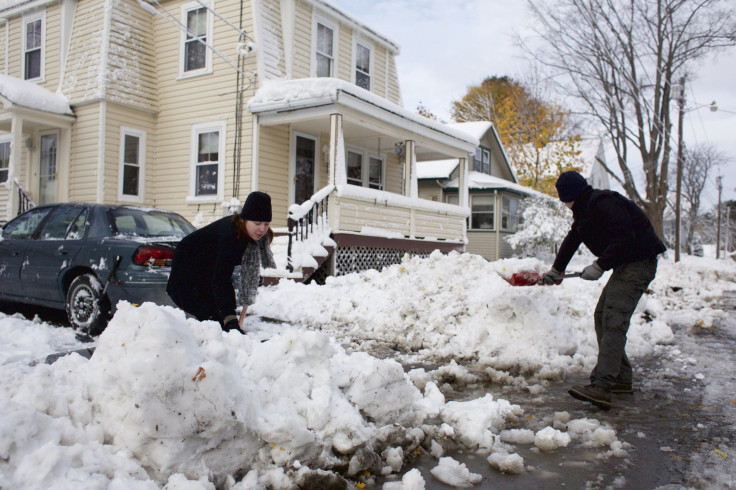Cold Winter Temperatures 2014 Update: Typhoon Nuri Gone, Polar Vortex Air Behind Cold Front

House Stark had it right: Winter is coming -- now. About 200 million Americans could see record low temperatures and early snow this week as a result of Typhoon Nuri, the strongest known Northern Pacific cyclone, which brought cold air down from the Arctic.
This will not be considered another polar vortex, ABC News reported, just air from it. But it's still going to be cold.
Nuri officially diminished into a tropical storm Wednesday and disintegrated last week. But its remnants, which hit the Aleutian Islands in Alaska this weekend, strengthened the weather pattern, Decoded Science reported. The system hit the jet stream, and the cold air slipped down from Canada. As such, Winter Storm Astro and other Nuri aftereffects will impact the United States for days to come.
States could experience weather that's 20 to 40 degrees colder than usual, the Associated Press reported. Residents from North Dakota to Texas should already be experiencing frigid temperatures, according to AccuWeather.com. People in Southern states will feel the Arctic air arrive the middle of this week. Although the storm should weaken when it goes into the Bering Sea, it'll cause the coldest weather of the season for the northern Rockies and Plains, according to the National Weather Service.
All in all, the cold spell should last about 12 days. This past weekend, Denver saw a change of 48 degrees in 48 hours, Decoded Science reported. The Midwest saw up to three inches of snow. "We're kind of getting locked in winter's grip here," South Dakota meteorologist Troy Kleffmen told the AP.
Looking ahead, Atlanta, Chicago and Minneapolis will all have more than 10 consecutive days where highs are 10 degrees or more below normal. New York will have 11 days with highs seven degrees or more below normal. Boston will have 11 consecutive days with highs five degrees or more below normal.
Still, the AP reported that the National Oceanic and Atmospheric Administration did not expect another extreme winter like last year's. The weather organization predicted an average winter for the end of 2014 and start of 2015.
© Copyright IBTimes 2025. All rights reserved.






















